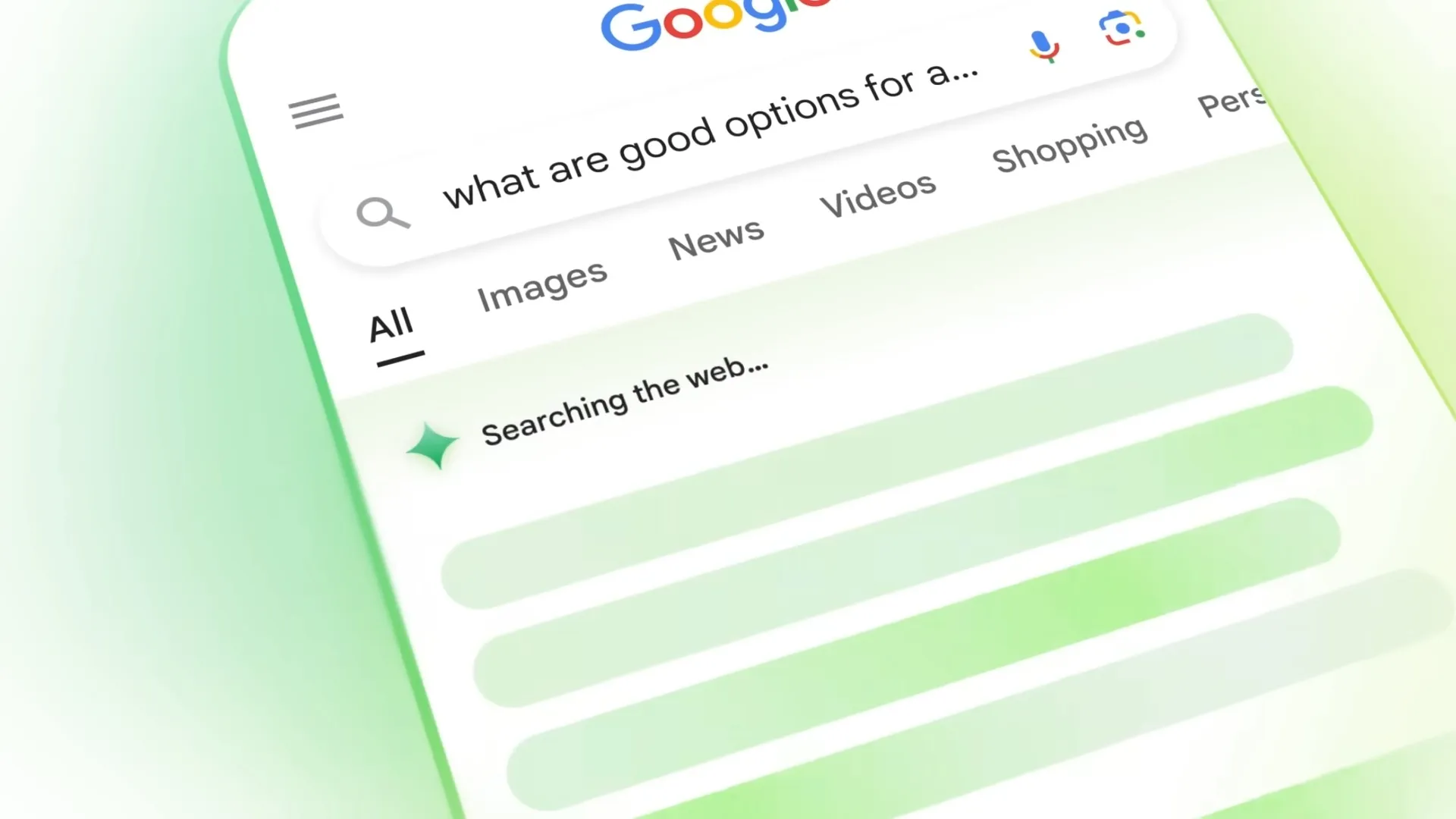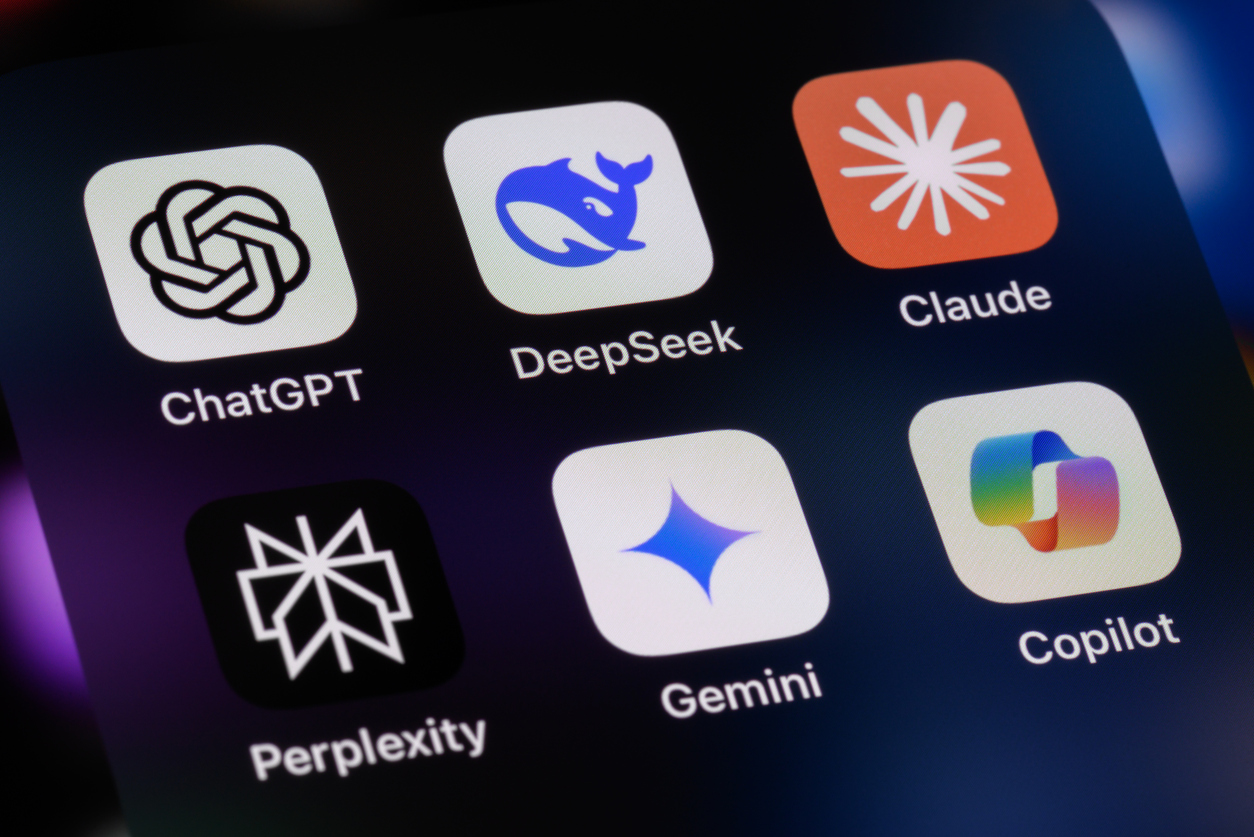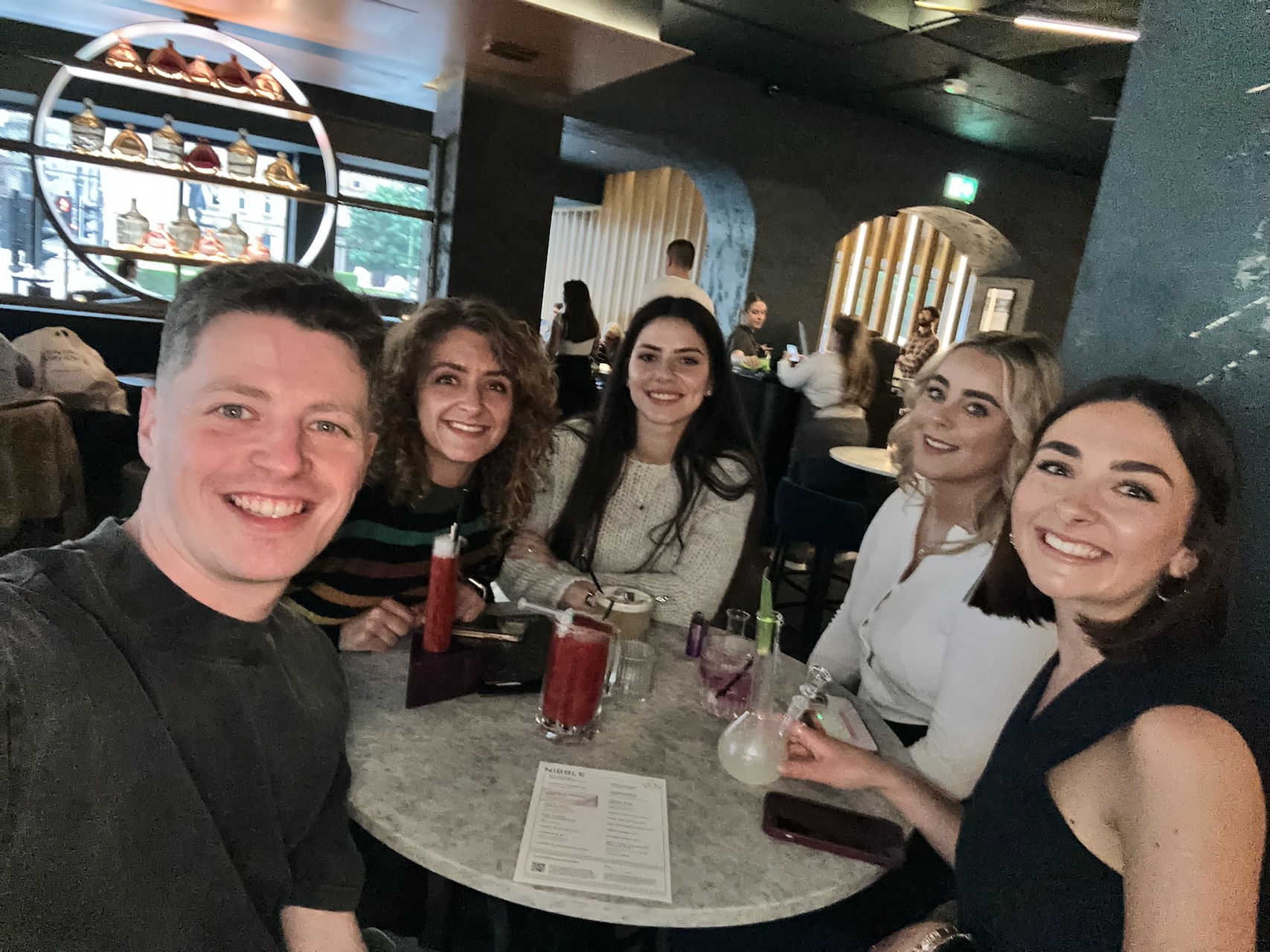Will AI replace SEO? How AI is changing search – and what that means for your strategy
Written by Kristin Kudeva
Introduction
Search is evolving fast. Generative AI tools like ChatGPT and Google’s AI Overviews are at the forefront of the latest search engine trends, reshaping how people discover and interact with information through online search. And that has a lot of businesses wondering: what does this mean for SEO?
At Scoot Digital, we’ve been watching these changes closely and helping clients adapt.
In this article, we’ll break down what’s changing, what still matters and how to future-proof your SEO efforts in a smarter, more strategic way.
Will AI replace search engine optimization?
With the rise of AI-generated answers in search results and the widespread adoption of AI-powered tools like ChatGPT, it’s no surprise that many businesses are questioning the future of SEO. If artificial intelligence can instantly summarise information, deliver direct answers, and, as recently reported, soon allow users to compare and purchase products from Shopify merchants directly within the ChatGPT interface, what role will traditional SEO continue to play?
The short answer is: SEO is far from dead, but it is evolving rapidly.
Recent research by Ahrefs shows just how real the shift in Google’s search engine has become. When Google’s Search Generative Experience (AI Overviews) appears in search results, the click-through rate on the top organic result drops by 34.5%. That’s a significant decrease in traffic, even for businesses who’ve historically had strong search rankings. It signals a shift away from traditional SEO tactics, where position one guaranteed online visibility and clicks.
But here’s what hasn’t changed: people still search, and businesses still need to be found.
What’s changing is the way information is delivered. AI-powered search is streamlining the journey between query and answer, often providing users with summarised, source-cited responses directly in the search results, without the need for a click. In this new environment, it’s not enough to rank. Your content must be credible, well-structured and authoritative enough to be selected by AI tools as a reliable source.
At Scoot, we’re not asking “Is SEO dead?” We’re asking: “What does SEO need to look like to stay effective in an AI-first world?”
The answer lies in a more strategic and technically robust approach to visibility that prioritises credibility, clarity and context. Best SEO practices in 2025 are no longer just about optimising pages for search engines; they’re about helping your brand earn trust from both search engine algorithms and audiences. That means structuring your site for crawlability, aligning content creation with user intent, and positioning your business as a go-to resource that’s worthy of being surfaced in both traditional search results and AI-generated answers.
How AI is affecting SEO in 2025
AI technology is impacting clicks (even when you rank well)
AI-driven search technology is fundamentally changing how people navigate the search process. What once involved multiple clicks, tabs and sources is now often reduced to a single, summarised answer delivered instantly in the SERP via an AI Overview or featured snippet.
Users no longer need to evaluate ten blue links to get their answer. Instead, they expect fast, direct responses, especially for informational or comparison-style search queries. This shift is even more pronounced in mobile and voice search, where attention spans are short and convenience is king.
While long-form, high-quality content remains valuable (particularly for building topical authority and satisfying more complex search intent), it’s not enough to assume that users will read from start to finish. To remain competitive in an AI-first environment, content must serve both quick-scan intent and in-depth exploration, depending on how the user engages.
What we’re doing about it at Scoot
- We’re doubling down on CTR optimisation – crafting meta titles and descriptions that speak to users’ intent, not just relevant keywords.
- We’re embedding schema markup (FAQs, How-To, Product, Review) to increase the likelihood of rich snippets, which make our clients’ listings more visible and engaging in the SERP.
- And we’re structuring content intentionally for AI Overviews, using clear subheadings, bullet points and question-based formats to increase the chance of being cited or referenced in Google’s generative summaries.
Search journeys are getting shorter
We’re in a new era of search where being in position #1 doesn’t guarantee a click anymore.
At Scoot, we’ve seen this first-hand – across a range of client accounts, organic impressions are rising, but clicks aren’t keeping pace. Even for content that ranks at the top of Google’s search engine results, we’re seeing noticeably lower click-through rates than this time last year.
Why? Because AI Overviews are answering more questions directly in the search engine results pages (SERP) and that changes user behavior. People get what they need faster, without clicking through to a site.
What we’re doing about it at Scoot
To adapt to shorter, more efficient search journeys, we’re actively reworking content optimization strategies for our clients, enabling businesses to meet users where they are. That includes:
- Structuring content to surface key takeaways quickly, using clear H2s and H3s, summaries at the top of pages, and bullet-pointed answers to common questions.
- Introducing TL;DR summaries at the top of informational articles to serve users who want instant value without scrolling.
- Embedding internal links to deeper content so users can choose their own depth, skimming or exploring as they prefer.
- Optimising for answer-ready formats that AI engines can parse and summarise easily (e.g. numbered steps, Q&A structures, “vs” comparisons).
- Auditing older content to trim fluff and front-load useful insights, ensuring that every page delivers value and high-quality content within the first few seconds of reading.
New content formats are being favoured
The way content is presented has become just as important as what it says. With AI now interpreting and summarising search results on the fly, formatting has become a powerful SEO lever.
AI models like those behind Google’s AI Overviews, Perplexity, and ChatGPT don’t just read – they extract, segment and reassemble content to provide fast, digestible answers. That means clear structure, semantic hierarchy and predictable formatting give your content a competitive edge.
Natural language processing (NLP) enhances search engine capabilities by enabling them to understand the intent behind user queries more accurately, shifting SEO strategies towards creating conversational and user-centric content.
What we’re doing about it at Scoot
To help our clients create content that’s AI-friendly and highly accessible, we’re focused on strategic formatting that supports both discoverability and usability:
- Embedding structured FAQ blocks into service pages and blog content to satisfy common, intent-driven queries
- Incorporating Q&A-style formatting to answer specific user questions concisely and boost eligibility for AI pull-throughs
- Using schema markup (e.g. FAQPage, HowTo, Article) to help search engines understand and surface key sections of a page
- Auditing content layouts to ensure pages follow a consistent, modular structure, with digestible sections, short paragraphs and clarity-focused design
First-party data is rising in importance
As AI reshapes the search engine marketing landscape, one thing that is becoming clear is that businesses need more control over how and where they connect with their target audiences.
With AI Overviews and no-click answers increasingly cutting the user journey short, relying solely on Google for traffic and leads is becoming less sustainable. SEO is still an essential entry point, but it can’t be your only touchpoint. Think of it as the front door, not the whole house.
We’re talking about the platforms you own and operate:
- Email subscriber lists
- Podcasts
- Webinars
- Private communities
- Your CRM and customer databases
- Even high-quality gated content that builds opted-in engagement
These channels aren’t subject to search algorithm updates or AI’s evolving citation preferences. They give you direct access to your audience, along with long-term, measurable ways to nurture trust and drive action on your own terms.
What we’re doing about it at Scoot
We’re actively helping clients reduce dependency on third-party platforms by:
- Creating lead magnets and newsletter strategies that convert organic traffic into owned audience lists
- Optimising blog content for conversion, not just traffic, using embedded forms, email capture points and relevant content upgrades
- Integrating analytics across channels so performance can be measured holistically, not just by SEO metrics
SEO is becoming more brand-driven
When a user sees your brand referenced in an AI summary or a search result, their decision to click (or not) hinges on familiarity. If your name means something, because they’ve seen it on LinkedIn, heard it on a podcast or received a great newsletter from you, they’re more likely to choose you over an unfamiliar competitor.
In this new SEO landscape, success is no longer just about visibility, but it’s about credibility.
Even if your content earns a mention in an AI Overview, there’s no guarantee of a click unless the user already trusts your brand. That’s why brand-led SEO strategies that focus on building recognition and positioning your business as an authority worth engaging with are becoming essential.
What we’re doing about it at Scoot
To help our clients thrive in a brand-forward SEO environment, we’ve been actively supporting initiatives that blend search visibility with broader reputation-building:
- Collaborating on thought leadership content that positions clients as go-to voices in their sector
- Supporting PR and digital outreach to build authority and earn high-quality branded mentions across the web
- Recommending on-site branding enhancements, like testimonials, awards and trust badges that reinforce credibility when users land on a page
- Adhering to E-E-A-T (Experience, Expertise, Authoritativeness and Trustworthiness) principles to help establish credibility, support content originality and enhance user trust
- Encouraging branded search term monitoring, so we can measure demand for the name itself, not just the services offered
Should you still invest in SEO?
With all the changes AI is bringing to search, it’s fair to ask: is SEO still worth it?
The short answer is yes, but how you approach it needs to shift.
SEO has always been about helping your business show up when people are searching. That hasn’t changed. What has changed is how results are presented, how users interact with them, and what earns clicks in a world where AI can summarise answers right there on the search page.
That means the old rules – like “ranking number one means more traffic”, no longer tell the full story. But that doesn’t make SEO any less important. In fact, we would argue it’s more valuable now than ever, because it’s harder to fake. Real trust, strong content and clear brand messaging are what make the difference.
At Scoot Digital, we’ve shifted our SEO processes to meet these new demands. It’s no longer just about keyword research and search engine rankings, but about showing up with the right message, in the right format, and in a way that builds trust.

Here’s what that looks like for our clients
- We write for both people and search engines, so your content performs in search, but also feels helpful and human when someone reads it.
- We help turn search visibility into real results, like newsletter signups, leads or sales rather than just clicks.
- We focus on clear, well-structured content that’s easy for AI tools to reference and even easier for people to understand.
- And we always keep an eye on the big picture, making sure your SEO works alongside your brand, content and digital marketing as a whole.
So yes, SEO is still a smart investment. But today, success isn’t just about being seen. It’s about being chosen, and that takes strategy, quality, and a clear, trusted presence across every part of the search journey.

Final thoughts
AI is reshaping the SEO industry, no doubt about it. But rather than sounding the death knell for SEO, it’s forcing it to evolve, and in many ways, for the better.
We’re moving into an era shaped by AI algorithms, where shortcuts don’t cut it and where brands that truly understand user intent (and meet it with clarity and value) are the ones that get chosen.
Wondering what AI means for your SEO strategy?
Book a free consultation and we’ll help you make sense of the changes and build a smarter plan.
At Scoot Digital, we don’t see AI as the end of SEO. We see it as an opportunity for SEO professionals to level up and help businesses aiming to grow online show up with purpose, making sure that every click, or every AI mention, is backed by a brand that’s worth trusting.
If you’re rethinking your SEO strategy in light of all these changes, you’re not alone. But with the right approach and the right partner, SEO is still one of the most powerful ways to drive meaningful, measurable growth.
And we’re here to help you do just that.
Latest insights.
Stay connected with Scoot. Read the latest insights from our team on the industry, the studio and what we’re delivering for our clients.



